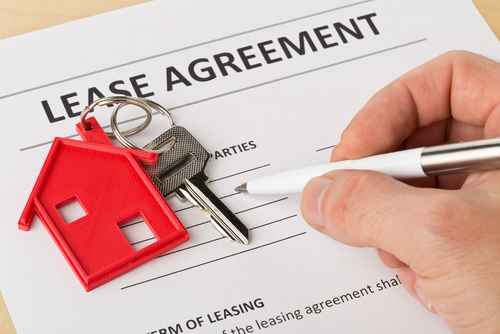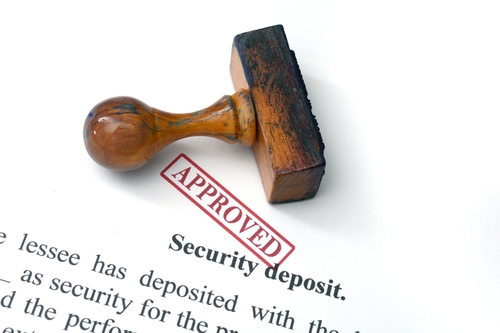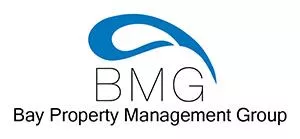Essential Lease Clauses Every Landlord Should Include

Contents of This Article:
- Why Do You Need a Strong Lease Agreement?
- What Is a Lease Clause?
- 5 Important Lease Clauses for Landlords
- Additional Lease Clauses to Consider
- Ensure a Strong Lease Agreement With BMG
Why Do You Need a Strong Lease Agreement?
A strong lease agreement provides a clear and legally binding framework for a landlord-tenant relationship. For instance, it outlines the rights, responsibilities, and expectations of both parties, reducing the likelihood of disputes or misunderstandings. If you utilize property management in Fairfax, they can help you develop a strong lease agreement.
That said, a good lease covers crucial aspects such as:
- Rent Amount
- Due Dates
- Security Deposit Expectations
- Maintenance Responsibilities
- Occupancy Limits
Along with those key details, it also ensures compliance with local laws and regulations, offering legal protection for both landlords and tenants.
What Is a Lease Clause?
A lease clause is a specific section within a rental agreement that outlines particular terms and conditions. Lease clauses cover various aspects, like rent payments, security deposits, maintenance responsibilities, rules regarding pets, and other essential details. That said, each clause defines the rights, obligations, and expectations of both parties involved in the lease agreement.
5 Important Lease Clauses for Landlords
In a well-written, comprehensive rental agreement, there are a few essential lease clauses each one must have. Some of the most important lease clauses for landlords include the following.
- Identify Landlord and Tenants- Every lease agreement needs to identify who the contact is between. For a rental property, the agreement is between the landlord and the tenants that will occupy the property. So, include each party’s full name and contact information in this section of the lease.

- Identify Property- Identifying the property is another essential lease clause to include. So, outline the name of your property and its full mailing address.
- Terms of the Lease- This clause outlines the duration of the lease agreement, specifying the start and end dates. It also covers any provisions for renewal or extension of the lease.
- Rent Amount and Due Date- This is one of the most crucial clauses for any rental agreement. It clearly states the rent amount, how often it’s due, and the specific day it’s expected. It may also include details about acceptable payment methods and any penalties for late payments.
- Landlord and Tenant Signatures- This is the lease section where both parties sign and date the lease agreement. Signatures mean that both the landlord and tenant have read, understood, and agreed to abide by the terms and conditions outlined in the lease. Additionally, this makes it a legally binding contract that can be enforced in a court of law.
Additional Lease Clauses to Consider
While the lease clauses listed above are some of the most important, they aren’t the only ones you should have within your rental agreement. After all, you want to ensure you dot every I and cross every T to ensure everyone is on the same page. That said, here are some additional lease clauses for landlords to consider.
- Severability
- Tenant Responsibilities
- Access to Premises
- Security Deposit Terms
- Guests and Occupants
- Pet Policies
- Lead Paint Disclosure
Severability
One of the most important clauses to include is a severability clause. This clause ensures that if any part of the lease agreement is found to be unenforceable or invalid by a court of law, it does not nullify the entire contract. So, the rest of the agreement stays in effect, providing a level of protection for both parties and preserving the overall validity of the agreement.
Tenant Responsibilities
This clause outlines a tenant’s specific duties and obligations during their tenancy. For instance, it covers aspects like maintaining the property in a clean and sanitary condition, promptly reporting any damages or maintenance issues, and adhering to any community or building rules and regulations. Clearly stating these responsibilities helps create a cooperative and respectful landlord-tenant relationship.
Access to Premises
An Access to Premises clause defines the circumstances under which the landlord, property managers, or contractors may enter the rental unit. Typically, this is for essential purposes like making repairs, conducting inspections, or addressing emergencies. This clause often requires the landlord to provide reasonable notice to the tenant, respecting their right to privacy and peaceful enjoyment of the property.

Security Deposit Terms
Most landlords require a security deposit. So, it’s important to include a clause detailing the specifics of the security deposit. For instance, you’ll want to include the amount required at the start of the tenancy, the conditions under which deductions may be made, and the process for returning the deposit at the end of the lease. This clause is crucial because it helps clearly understand how the security deposit will be managed.
Guests and Occupants
Having a Guests and Occupants clause allows you to set forth rules regarding individuals who aren’t listed as formal tenants on the lease agreement. It often specifies a limit on the length of time guests can stay before they’re considered tenants under the lease agreement. This clause is important for maintaining control over who resides in the property and ensuring that any long-term occupants are formally included in the lease.
Pet Policies
If you allow pets in your rental properties, you’ll want to include a pet policy within your rental agreement. This may include restrictions on types of breeds, additional fees or deposits, and expectations regarding pet-related responsibilities like cleaning up after them and preventing damage to the property. This clause helps establish clear guidelines for responsible pet ownership within the rental arrangement.
Lead Paint Disclosure
In jurisdictions where it applies, the Lead Paint Disclosure clause informs the tenant about any known lead-based paint hazards within the rental property. It provides essential information regarding potential health risks associated with lead-based paint and ensures compliance with legal requirements for disclosure and remediation.
Ensure a Strong Lease Agreement With BMG
Owning rental properties and managing tenants and their needs takes a lot of work and due diligence. That said, a solid lease agreement is one of the most important aspects of any landlord-tenant relationship. After all, you want to ensure everyone’s on the same page with rent payments, maintenance responsibilities, and other rental procedures.
If you’re looking for help drafting a solid, legally binding lease agreement, you may need help from a property management company. Bay Property Management Group is well-versed in all things property management, ensuring your leases and rental processes are legally compliant. So, if you’re looking for help managing your rentals in Northern Virginia, contact BMG today!



